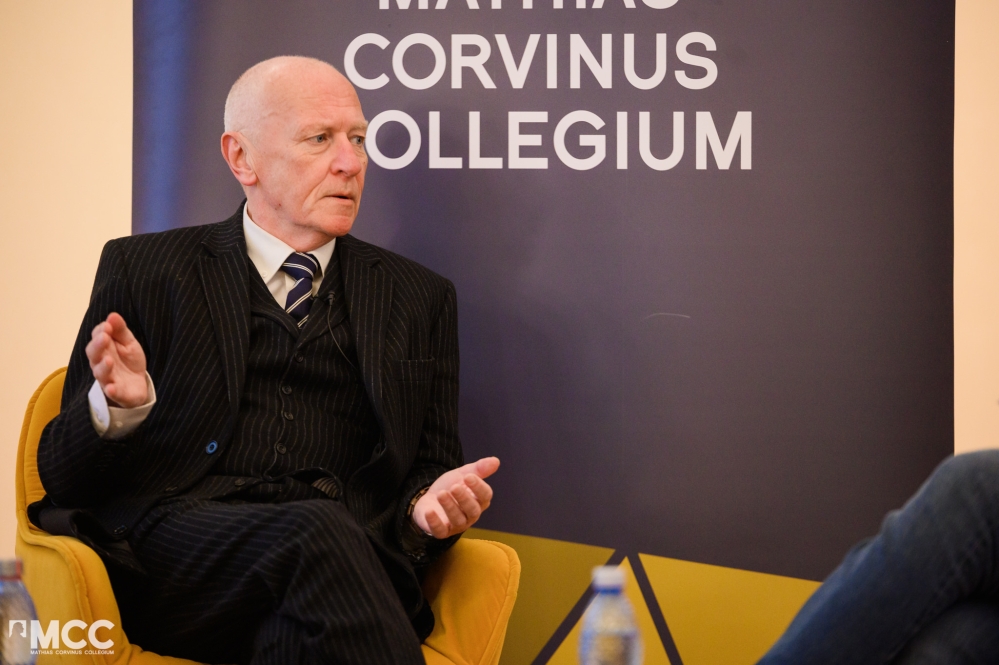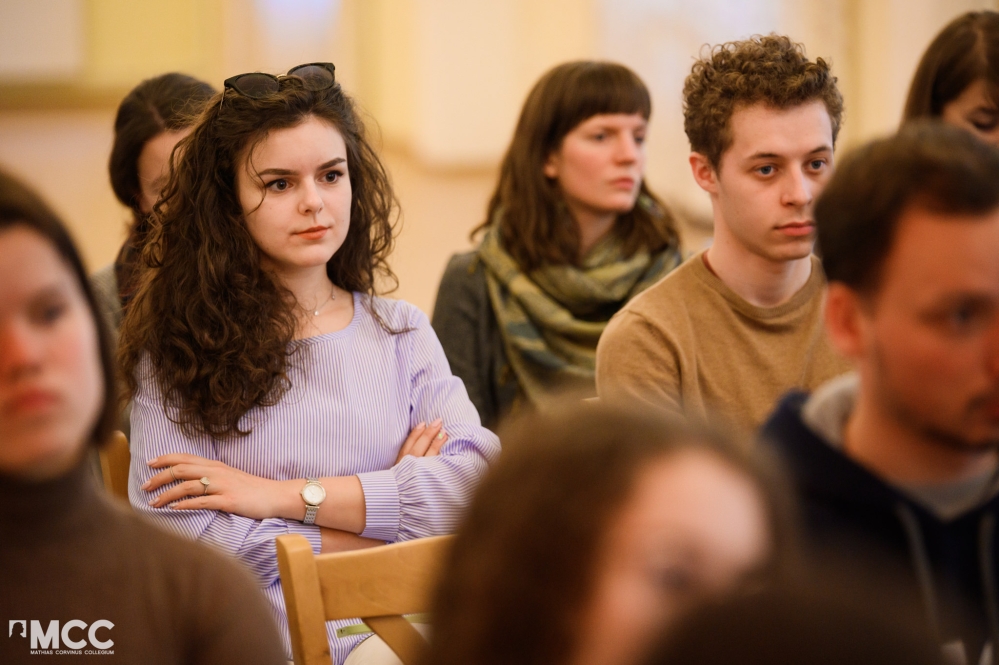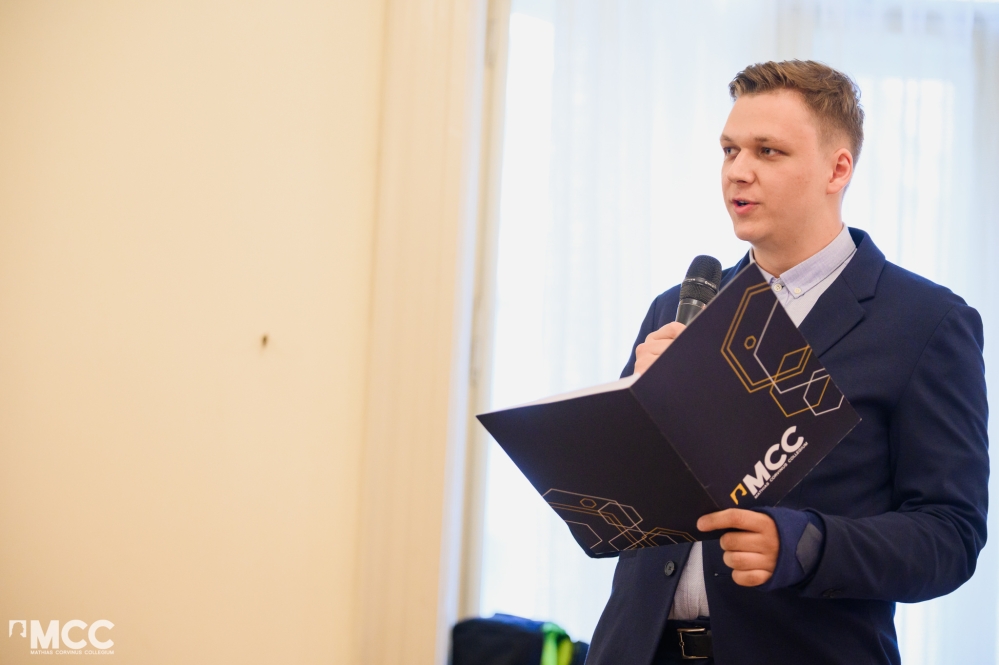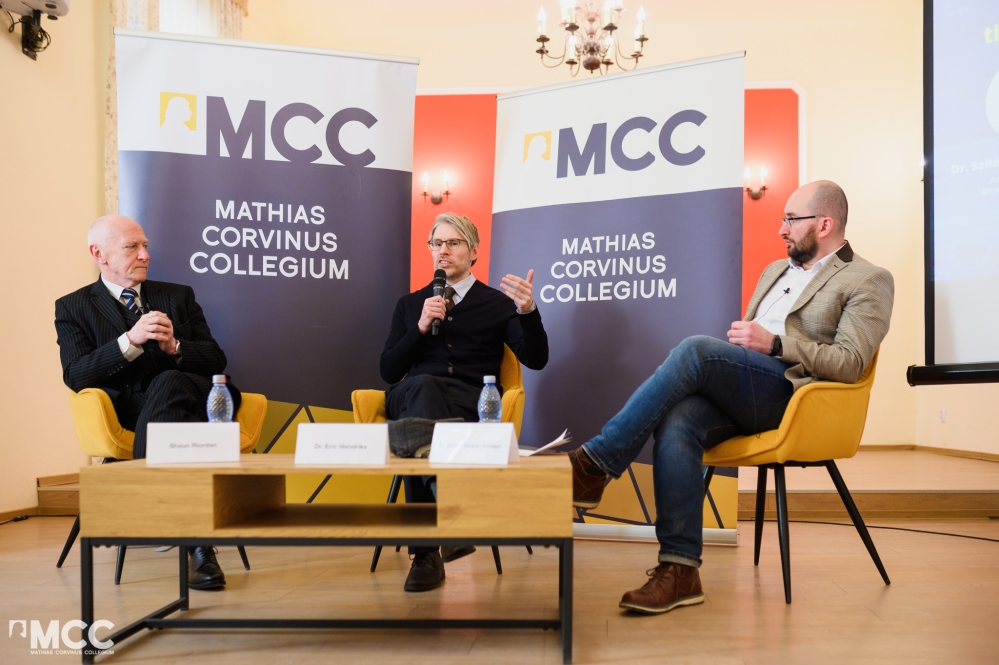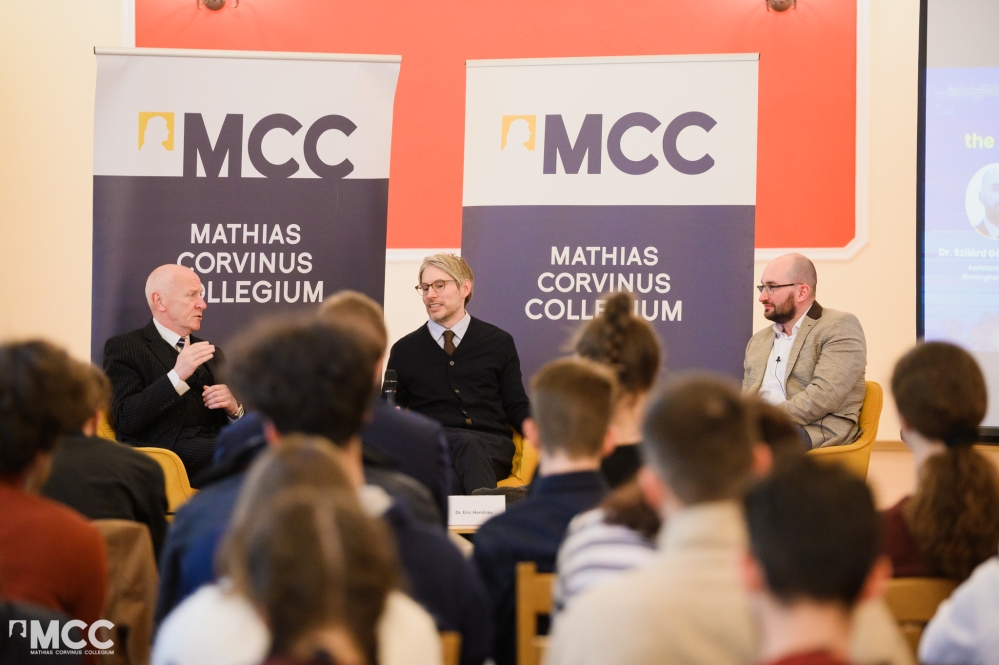Reading time: 4 minutes
Many argue that the 21st century will be China’s century, after America’s century. But can it become a world leader? Invited experts discussed China's global influence, its economic situation and its future at Mathias Corvinus Collegium’s (MCC) panel discussion on 28 March.
Following the death of Chairman Mao, China has seen an unparalleled economic rise, coupled with an increased presence in geopolitics and a growing military. By now, China has arguably become the second most important economy in the world, with an economic presence in Asia, Africa, Europe, and increasingly the Western Hemisphere. However, a looming demographic decline, a potential conflict with Taiwan, and an ongoing trade war with the United States might curtail China’s global ambitions.
At MCC's roundtable discussion on Tuesday, Shaun Riordan, Dr Eric Hendriks and Dr Szilárd Gáspár-Szilágyi shared their thoughts on the issue. Shaun Riordan is the Director of the Chair for Diplomacy and Cyberspace at the European Institute of International Studies and a senior Research Fellow at the Charter Institute (Beijing). He has taught at diplomatic academies in Spain, Armenia, Bulgaria and the Dominican Republic and at business schools in Switzerland and Spain. He served for 16 years as a British diplomat with postings in New York, Taiwan, Beijing and Madrid, as well the Foreign Office in London. Dr. Eric Hendriks, a Dutch sociologist, researches China’s integration into the global order, keenly interested in the ideological tensions involved. He earned his Ph.D. from the University of Mannheim, and worked at the University of Bonn and Peking University. He lived in Beijing for six years, researching the educational linkages between China and the United States. He is currently a fellow at the Danube Institute. Dr. Szilárd Gáspár-Szilágyi is an Assistant Professor in EU and International Economic Law at Birmingham University, UK. In various capacities he has taught and conducted research at the Universities of Oslo, Keele, Amsterdam, the Hague, and Aarhus.
China has always played a central role in Asia throughout history, and this consciousness is still strong in China today, says Shaun Riordan, who believes that China's success or failure will be equally relevant for us, as its sheer size, population and economic power will influence the way the world develops. The former diplomat recalled his visits to the country in the 1980s, when conditions were almost medieval, and said the economy had grown enormously since then. But today, there is a sense of uncertainty and tension in society about the United States, Taiwan, the aftermath of the epidemic and the future of the country.
The invited experts agreed that Taiwan will play a crucial role in the future. They believe that China does not want a military conflict because it would lead to US interference and the destruction of Taiwan, but China cannot allow Taiwan to declare independence. The danger is that Western politicians do not really understand the complexity and sensitivity of the situation. The Chinese are worried that President Xi Jinping sees Taiwan as a way of creating his own historical legacy.
Eric Hendriks said that, although China has enormous economic power, it has no cultural influence in the world. The sociologist pointed out that America remains the center of attention in the existing asymmetric world power. An interesting example is that South Korea, though economically dependent on China, is culturally entirely focused on America. In terms of pop culture and media consumption South Korea has a bigger influence on China. Shaun Riordan added that China is trying very hard to be culturally attractive, but the world is skeptical. At the same time, in the economic process, it has the advantage of not imposing its cultural views on its business partners, as the US mostly does.
In Europe, there are major contradictions about China's policy, explains Shaun Riordan. The epidemic and the war led Europe to take America's side against China and Russia, but now the criticism has eased. Europe is desperate to find a way out of the war, even if Xi Jinping is the mediator, and China would benefit greatly from intervening to resolve the Russia-Ukraine conflict.
"The Mathias Corvinus Collegium places a high priority on building international relations, so that our students and the communities of Transylvanian cities can meet with distinguished professionals, renowned foreign academics and discuss the pressing issues of our time," said Botond Talpas, Director of Transylvanian Activities at MCC. He added that the aim of the public lectures is to provide a space for free exchange of ideas in addition to information and learning.
